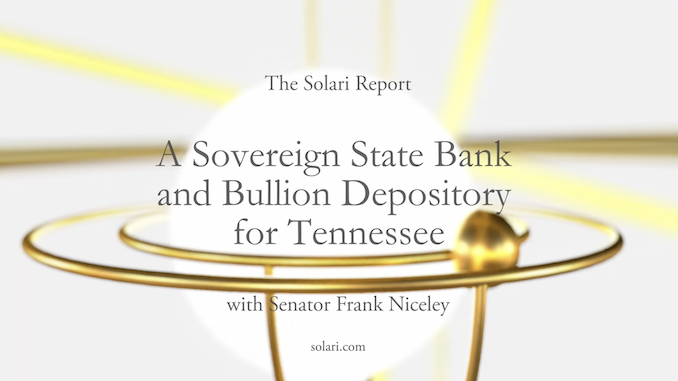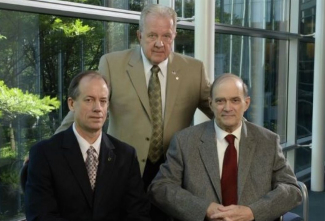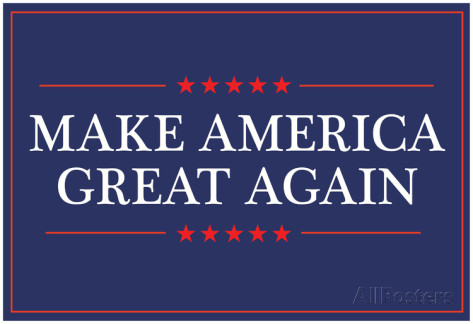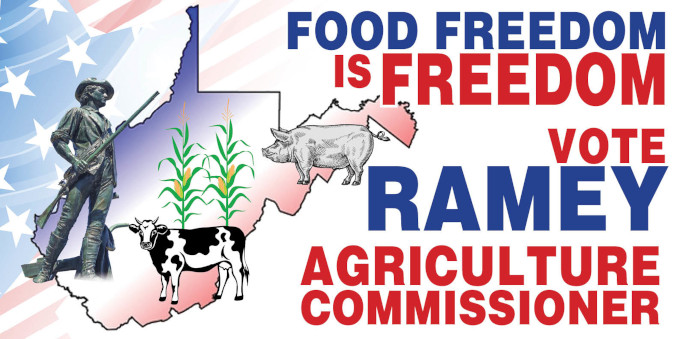Listen to the Interview MP3 audio file
Download the Interview MP3 audio file
Read the transcript of Special Solari Report: Jury Nullification with Elizabeth Rich
“I consider [trial by jury] as the only anchor ever yet imagined by man, by which a government can be held to the principles of its constitution.” ~ Thomas Jefferson to Thomas Paine (1789)
“The purpose of a jury is to guard against the exercise of arbitrary power — to make available the common sense judgment of the community as a hedge against the overzealous or mistaken prosecutor and in preference to the professional or perhaps overconditioned or biased response of a judge.” ~ Associate Justice Byron White, U.S. Supreme Court (1975)
By Pete Kennedy
Jury nullification means the right of the jury to refuse to convict if the jury believes the conviction would be unjust, even if the law and the facts of the case point towards the defendant’s guilt. Jury nullification, also known as jury independence, serves as a crucial check against government oppression and abuse of power. Nullification occurs when the jury believes either the law itself is unjust, the law is unjust as applied to the facts of the case, or the punishment is too severe for the crime.
A look at the historical backgrounds of both the 6th Amendment (guaranteeing right to jury trial in criminal cases) and the 7th Amendment (right to jury trial in civil cases) show the Founding Fathers implicitly recognized the right of jury nullification when they adopted the bill of rights. John Adams said, “It is not only his [the juror’s] right, but his duty to find the verdict according to his best understanding, judgment and conscience.” The jury is the conscience of the community. Jury nullification can serve as notice to the bureaucracy not to enforce a particular law; it can be a message to the legislature that it is time to change the law. Historical examples of jury nullification are fugitive slave laws, prohibition and, more recently, marijuana cases.
Unfortunately, because of the U.S. Supreme Court ruling in the 1895 case Sparf v. U.S., judges are under no legal obligation to either inform jurors of the right to nullify or allow defense attorneys to do the same. As a result, few judges have informed jurors of the right to nullify or have allowed defense counsel to do so; the right is something jurors have to either find out about or figure out on their own. Only a handful of states mention jury nullification in their statutes or constitution.
With the rapid decline of the rule of law, it is crucial that states pass laws requiring judges to inform jurors about the right of jury nullification. Serving on a jury is one of the most important duties of citizenship we have, especially at a time when another critical check on government power, the right to vote, is being diluted.
Juries informed about their jury nullification rights can protect against the enforcement of legally questionable lockdown orders and other COVID-related mandates.
Veteran Wisconsin litigator Elizabeth Rich, an attorney with over 30 years experience in the courts, joins the audiocast to discuss the reasons for jury nullification and its background. Then we explore how jury nullification worked in the criminal case, Wisconsin v. Hershberger, in which she represented a member of the Farm-to-Consumer Legal Defense Fund (FTCLDF).
Elizabeth Rich has a law practise in Plymouth, Wisconsin. She also is the president of the Food Freedom Foundation a 501(c)(3) nonprofit that supports the work of the Farm to Consumer Legal Defense Fund and other like minded organisations. In addition she serves as president of Andrew’s VOICE, a nonprofit dedicated to reforming the involuntary civil commitment system in the U.S..
In Let’s Go to the Movies, I recommend a short video about the 2013 case of farmer Vernon Hershberger in Sauk County, Wisconsin, which resulted in acquittal on three of four misdemeanor charges.
Related Reading:
Fully Informed Jury Association (fija.org)
Andrew’s VOICE.org (andrewsvoice.org)
Victory Over Involuntary Commitment Excesses
Food Freedom Foundation (foodfreedomfoundation.org)












Thanks for the great interview on jury nullification. This is a powerful tool in the legal world, and is really the ultimate “wild card” in any jury trial.
I was on a jury in the late ‘90s, in a small town outside of Atlanta, GA. The case was between two women, who had been in a relationship, but the relationship went bad, and they were suing/counter-suing in a civil action. It was odd that this particular case got to a jury trial, as it seemed like arbitration was a more optimal solution, but there we were.
The evidence that was presented to us was of all the mean and nasty things the two women did to each other as they were breaking up. The judge then charged the jury with the type of law that we were supposed to use to decide the case. The judge said that we were supposed to use landlord-tenant law to decide the case, and figure out what to give each of the plaintiffs/defendants.
When the jury got to the deliberation room, everyone was excited to discuss the particulars of the case and figure out how to divide assets between the parties. But the real problem in the case was that the two women had lived as if they were married, and now were trying to get a divorce. At the time, there was no legal avenue for marriage between these women, hence no means of legal separation or divorce. I went to law school for one year (thankfully woke up and broke free of that system before it sucked me in), and had some background understanding of how the legal system and juries worked (I was not asked in the voir dire if I had had any legal training, so never offered this information). I waited for everyone in the jury to speak their mind about what they thought we should do, and after everyone had spoken, I told them what I perceived to be the real issue, and that we should rule the case based on these ideas. I had to talk to each person, and their unique confusion, to get everyone to understand what was actually going on. Everyone was so confused by the judge’s instructions, that we had to go back out to the courtroom to get him to tell us his legal directions a second time. Back in the deliberation room, everyone was now clear about the real issue. I proposed that we let each side win, and give the other $1.00, and then remand the division of property to arbitration. When we returned this verdict, everyone in the courtroom was a bit confused, and the judge asked the jurors to stay and explain how we came to the verdict. The foreman and a few other jurors quickly spoke up, and all were very excited to tell the judge how they figured out the solution to this problem (and in their own way, each one did have to figure out the solution through the prism of their own confusion). Getting all of the jurors to take ownership of the decision through the jury nullification process has been the highlight of my non-legal career! 😉
Thank you for all that you do with Solari.com!
What a great story – result. BRAVO. I have only served on one jury – and it was a very inspiring experience. A group of 12 citizens can be so wise.